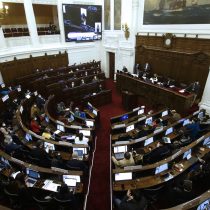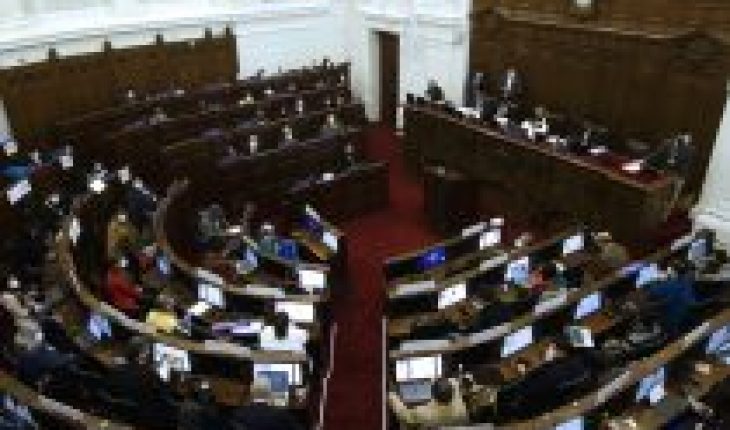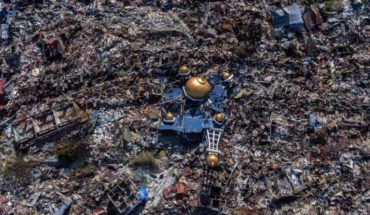
The Convention goes through turbulent times, like a teenager in abrupt and intriguing body explosion. In appearance chaos and chimuchina, as desired by the harassing press, highlighting scandals and omitting the enormous regulatory advances, including the procedural treatment of the supra quorum. Unprecedented historical process in Chile emerging from and with the plebeian and parity city, ancestral and mestizo, not to reform but to make a new Constitution.
Three sequenced and copulative processes are underway: spontaneous social explosion against the neoliberal order, 18/O, turned into a virtual and street uprising (for some), deliberative and binding (80% approve of the idea of a new constitution, election of majority of constituents of the left and center), and self-convened dismissing the alleged lack of direction, leadership and political color. Process channeled institutionally from a reform to the current Constitution imposed on the Piñera government and its coalition at the time of its greatest weakness: Constituent Convention, plebiscites of entry and exit, citizen participation. Finally, the replacement – already initiated – of authorities at all levels against the light of the citizen trial regarding their performance during the outbreak and in the face of the effects of the pandemic.
The space of the public, that is, of Politics, is recovered and resignified: where individual wills are cemented in collective wills in the face of institutionality and the State. But now the charge to politics is from the individual and family and not from incomprehensible -for now- and abstract social categories: from everyday and urgent horizons and not from unattainable long-term utopias; and, finally, from the local territory, where the here and the now daily and personal (family, health and education, welfare, crime, etc.) are combined in the same and limited geographical and symbolic space. The public from the territorial and the everyday places the municipal power as the main executor of public policies, raises the demands on its authorities, and opens spaces for the participation of the people, not as neighbors and settlers, but of active citizens of their communes, basic units of the Republic.
The territorialization of politics and, with it, the decoupling and autonomization of civil society from its former leadership generates new factual and virtual social fabrics and leaderships associated with corporate expressions and / or specific themes. Expressions threaded by a common repudiation of the parties and the (bad) politics, with great grassroots activism, and that would explain the presence of some constituent “benches”: LDP. Indigenous Peoples, feminists, LGBT+, environmentalists and a majority of independents outside and within the parties. The concept of majority (and minority) changes radically: from the traditional quantitative majorities to that of qualitative majorities or diverse majorities formed by territorial and/or corporate groups, sometimes populationally minority and without greater political experience or previous party militancies, but expressive of the ideological and cultural diversity of the country. Herein lies the greater legitimacy and strength of the Convention, and also the source of its inevitable turbulence.
A big step has been taken in generally approving its complex rules of procedure and procedural quorum. Further down, Chile Vamos Derecha fell into its own trap and that qualitatively facilitates the progress of the Convention: progressivism as a whole exceeds the supra quorum approving by having more than 2/3 of the constituents and the right, for its part, is left without veto power by not achieving the necessary 1/3. That quorum of 2/3 initially perverse today in a virtuous quorum: since no group owns it separately, it forces broad agreements of the center-left and the left, and with dialoguing, civilizing and inclusive right-wing constituents.
The scandals and sectarianism of the extremes are leading some constituents to massively dissociate themselves from their groups of origin (LDP:, Rojas Vade scandal, embarrassing Cuevas/Ancalao) and others to differentiate themselves internally (Chile Vamos: group of 12, distancing themselves from Cubillos and Marinovic) and to repair (paraphrasing Mexican sayings) that the maximalist rush only remains fatigue and that nothing is so bad that it can not be worse when you go from the hand of lies, sectarianism and disqualification. Paradoxically, such excesses, to the chagrin of the harassing press, have contributed to catalyzing and expanding a majority of the press.ransversal and diverse that values the climate of understanding and civic friendship between those who think differently. It is very likely changes hitherto unimaginable in the subjectivity of the constituents, the implicit account perhaps unwritten of new opinions and citizen relations almost as important as the new Constitution (outbreaks of that have reported Patricia Politzer and Patricio Fernández).
The content expressed in this opinion column is the sole responsibility of its author, and does not necessarily reflect the editorial line or position of El Mostrador.





